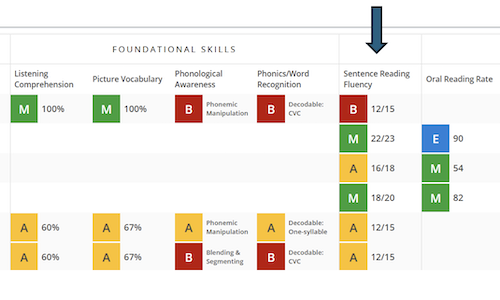
Building a positive school data culture is no small feat. I introduced seven steps that can help leaders like you be successful in “K–12 data leadership: Be the change for your school community” and dug into the steps a bit more in “Rewriting your data identity and the role of self-reflection” and “Data in education: Starting small and seeking professional learning.” In this article, I’ll explore the remaining steps: building a team, accountability, and mentorship.
But first, I want to express my gratitude for you, and for all the amazing leaders who have inspired this work. While we often speak in terms of deficits, the amount of successes happening in our schools nationwide should not be understated. We are at a pivotal moment in education, and leadership can truly be the tide that lifts all boats. I’d like to dedicate this article to all you school and district leaders who are digging deep, confronting your data identity, and leading your community in prioritizing growth.
I’ve written about the internal narratives that prohibit leaders from becoming their best selves, the importance of turning to the edu-pros when you feel stuck, and the way self-reflection keeps us on our growth path. Now let’s dive into the ways a community can help us strengthen our school data culture.
We’re so much better together
Every year, when the NFL draft begins, sports fans get into fevered debates over which team will get which NFL hopeful. To the victor, the spoils do not go. Instead, lower-performing teams are given first dibs to acquire new talent and level the playing field once the season starts. (My team, unfortunately, has had prime selection in the last few draft picks. Fingers crossed for 24–25.)
The idea is simple: the team needs to be better. And the keyword here? It’s “team.” Rarely can one person march forward to greatness—or, in this case, significant growth—on their own. And, conversations about Number 12 aside, it takes a village to get across the line.
As a leader, once you’ve cleared your own internal obstacles and registered for some meaningful professional learning, you can start to consider your #GrowthGang (I just made that term up). That’s the core group of people who will not only inspire you to keep going, especially on the path to building a positive school data culture, but from whom you can learn and with whom you can grow.
The ebb and flow of growth is easier to withstand when we have a group that empathizes with and supports our internal and external mission. Many school leaders can create a cabinet, essentially their dream team of trusted advisors. I have learned through my conversations with school leaders that equal parts diversity and similarity in skills, disposition, and background are what make a strong leadership community. It’s being similar and different in the ways that count, the ways that push us forward, that can make a tremendous difference, one leader I recently spoke with said.
As you settle into your new school year, I encourage you to reflect on your core group—and take the opportunity to build a team that can go the distance with you.
Don’t settle on accountability
Once you have your team assembled, employ them to keep you on track. As I’ve written before, old habits have a way of creeping back in without notice, so hold yourself accountable to a consistent, committed mindset. Sure, this might wax vulnerable, but holding yourself accountable is non-negotiable.
Step outside the school version of yourself for a moment and reflect on when and how you call on your personal team (a trusted family member, a lifelong bestie) to keep you on track. How did support help you reach a goal or overcome an obstacle? How did having someone in your corner help you be the version of yourself you most want to be?
I know that whenever I feel a limiting behavior is upon me, I call my sister for some much-needed objective insight. Sometimes we are so close to the challenges before us that we can’t see them clearly, much less the best ways to go about solving them. Having a team of trusted colleagues who can serve as a sounding board and thought partners can lift us out of our too-close perspective and make the challenge of improving a school data culture so much easier.
The best kind of ship? Mentorship!
If willpower and commitment aren’t issues for you, and you are intrinsically motivated to stay the course, then a) well done and b) consider elevating your experience by becoming a mentor. If entered into with intention, mentorship is low risk and high reward. We often feel, incorrectly, that learning and teaching cannot happen simultaneously. However, as a mentor, you can blend the two. You can fill your cup by supporting someone in their growth journey and applying your newly honed skills; they can fill yours by bringing a new set of ideas and skills to the table. What could be better?
If being a mentor doesn’t feel right to you, that’s okay. Asking for guidance is more than okay, and becoming a mentee is a great way to learn in a 1:1 environment. Committing to habit change is easier when you’re in the work with someone you value and trust, too.
Whichever side of mentorship you find yourself on, being accountable to a colleague and having them be accountable to you is a surefire way to surround yourself with people who will support and enhance your growth, especially when it comes to the arduous work of building a positive school data culture.
Best wishes for this school year
Each new school year signals to us a fresh start and a chance to reclaim our rough edges and set our sights even higher. For students, a clean academic slate provides endless opportunity for growth, self-discovery, and expansion. For teachers, it means trying new ideas, embracing differentiation, and creatively seeking each student’s personal best by pairing data with content. For leadership, it is a time when we can move with confidence in a new direction, keeping a close eye on the rearview mirror to make sure we have learned from the past.
Now is the time. Seize that confidence. Keep moving forward. I’m confident you can build a school data culture able to support your teachers in their work and your students in reaching their potential.






